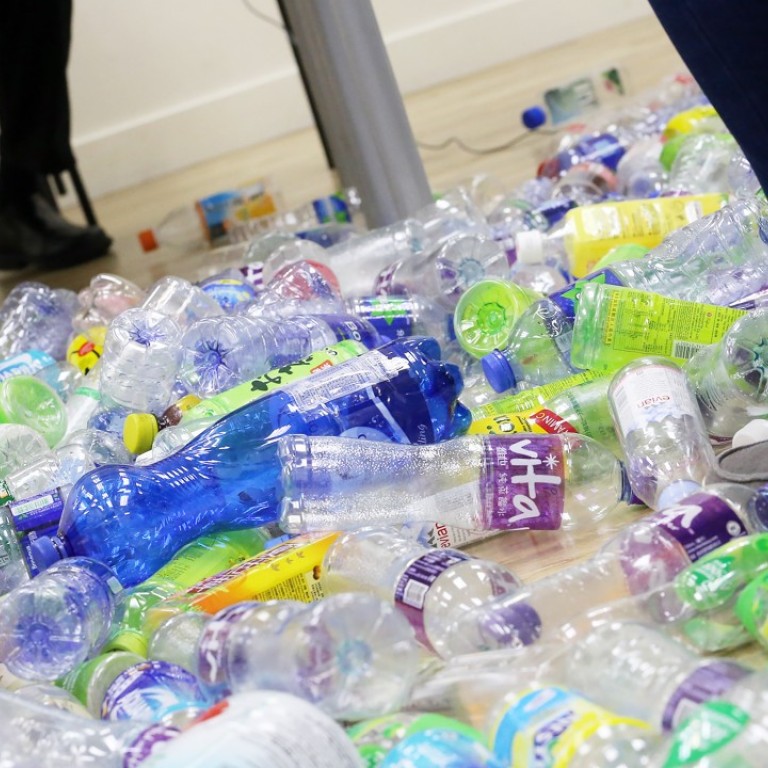
Hong Kong must be ready to get drastic on plastic
With 2,000 tonnes of the material having gone into city landfills over the past three years, it is to be hoped that a pilot recycling scheme will have an effect
To say that Hong Kong’s recycling industry only exists in name is not an exaggeration. Our recycling rate is not only disappointingly low, but also much of it involves shipping the collected waste across the border for processing. That explains why we are one of the world’s most wasteful cities. In a positive change, the government is helping the industry to reform. Under a pilot scheme to be rolled out next year, recyclers are required to collect, sort, clean, shred and melt used plastics to produce regenerated materials for local and overseas markets. Private and public residences, schools, public offices and government-run recycling centres in three districts will be covered.
Currently, the recycling of plastic bottles is basically voluntary. From time to time, the green responsibility of the public is dampened by reports of sorted bottles being tossed into landfills by rubbish collectors. This is not helped when the revised publicity drive by the government still leaves many confused about what can be recycled. Meanwhile, our recycling business is largely market-driven. When the mainland, one of the world’s key recycling markets, stops importing used plastic and other types of solid waste, our fragile industry chain instantly suffers.
Details of the recycling trial remain sketchy at this stage but, when well implemented, it has the potential to transform the industry into a more sustainable one. It also complements our long overdue municipal solid waste charging scheme, whose implementation has been put back to late 2019. The initial response from some recycling operators was understandably guarded, and an industry leader said there was still room to profit if an operator collected at least 30 tonnes of good quality used plastic each day. The prospect seems promising as long as the numbers can be made.
That comes down to public education and, ultimately, effective legislation. Over the past three years, more than 2,000 tonnes of plastic have gone into landfills, about 10 per cent being disposable tableware and bottles. More overseas governments are now banning the use of plastic, and some local fast food chains no longer hand out straws and drinks’ lids made of the material. Officials should adopt tougher measures if the situation shows no improvement.

